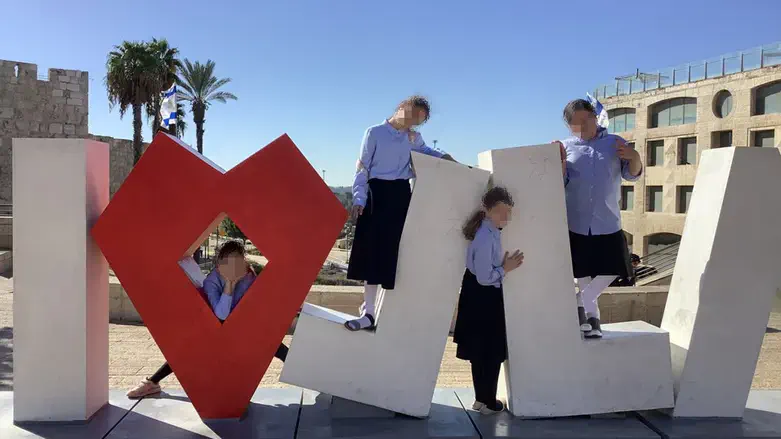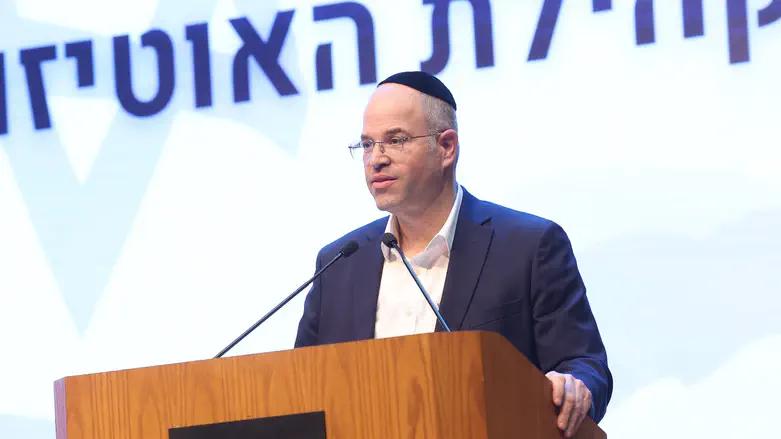
At the Shtilim Special Education Network, we believe that every individual—regardless of the challenges they face—is an essential part of the social fabric. As such, every person deserves to experience inclusion, dignity, and opportunity at every stage of life.
Shtilim provides specialized interventions for children and adults with a wide range of needs, including autism, behavioral disorders, and other developmental conditions. This continuum of care spans from early childhood through adulthood and is facilitated by 44 educational institutions in 22 communities across Israel. At its heart, the Shtilim model ensures that every student has the opportunity to transform their challenges into meaningful contributions to society.
Guided by the vision of founder and director Rabbi Yisrael Reisner, the network is grounded in a deep commitment to student and family well-being. "We advocate not only for educational support," he says, "but for full, respectful integration into the mainstream—a life filled with mutual giving, receiving, and purpose."
Life Skills, Unlocked
At the Shtilim School for Boys in Jerusalem’s Har Nof neighborhood, students on the autism spectrum acquire not only academic knowledge but also practical life skills. Many of the students have medium-to-low functioning levels, and the school is designed to meet their unique needs with patience, expertise, and dignity.
Sivan Pelvani, a behavioral guide at the school, specializes in designing and implementing strategies to improve behavioral and social functioning. "Children on the autism spectrum with medium-to-low functioning tend to be unpredictable," she explains. "They can have outbursts and struggle to self-regulate in stimulating environments. As a result, parents often avoid taking them out—to the store, the park, or family events."
Shtilim’s mission, she emphasizes, is to give these children the tools they need to participate in everyday life. Students learn how to shop independently, navigate public transportation, and use tools like the Rav-Kav transit card—essential steps toward autonomy and social participation.
A Trampoline and a Turning Point
One recent experience exemplifies how even a small request can become a transformative educational opportunity. Sivan recalls a student named Nati*, 19, who expressed a strong desire to jump on a trampoline. "That kind of self-expression isn’t something we take for granted," she explains. "For someone with autism, recognizing a desire, articulating it, and sharing it with others is a major developmental milestone."
The staff listened carefully. “When a student makes a request, our job is to receive it with respect, to show that his wishes matter, and to do what we can to make it happen.” They soon realized that the school’s existing trampoline no longer met the needs of the older teens. In response, the team organized a trip to an indoor trampoline park.
The result was powerful. “Everyone gained thanks to Nati,” Sivan smiles. “And for Nati himself, seeing his idea come to life was a huge personal accomplishment. It gave him validation, confidence, and joy.”
To learn more about Shtilim please visit here>>>
Inclusion in Action
At the Shtilim communication kindergarten in Beit Shemesh, children on the autism spectrum are educated in an environment specifically designed to support their emotional regulation and communication development. But what makes this kindergarten truly unique is its “reverse integration” model: instead of integrating children with autism into mainstream classrooms, typically developing children come to visit and interact within the special-ed setting.
Ruth, an occupational therapist at the kindergarten, explains: “For the autistic child, this environment is safe, structured, and familiar. That stability is what allows them to engage. For the visiting children, it's an opportunity to meet someone different, understand their needs, and realize how much they have in common.”
When Empathy Meets Friendship
Ruth shares the story of Avi*, a five-year-old boy in the program who struggled deeply with emotional and sensory regulation. “He rarely participated in group activities and often seemed restless or disengaged,” she says.
That changed when Shmuel, a neurotypical child participating in the integration program, came to visit. The two quickly discovered a shared fascination with tools and “fixing things.” What began as parallel play evolved into true engagement. "Avi initiated conversations, invited Shmuel to play in the yard, and even began using new language to describe what they were building together," Batya recalls. “It was incredible to witness.”
Their connection grew beyond the classroom. “Shmuel recently invited Avi to his home for a playdate,” Batya says. “And it wasn’t out of pity or obligation. They’re just friends. That’s the beauty of what we do here.”
Changing the Narrative
Programs like Shtilim’s reverse integration don’t just help children with autism gain critical social experience—they also shape how future generations understand difference. "Inclusion is a two-way street," Batya emphasizes. “When typically developing children grow up interacting with kids who have special needs, they learn empathy, patience, and respect.”
At Shtilim, inclusion is more than a principle—it’s a practice lived out every day, in classrooms, kindergartens, and community centers throughout Israel. “We don’t just teach life skills,” says Rabbi Reisner. “We teach that every life matters.”
To learn more about Shtilim please visit here>>>
